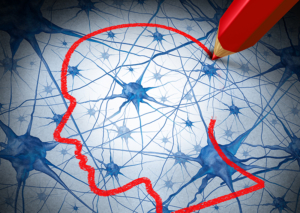Alzheimer’s Research Brings Unexpected New Information

New Alzheimer’s research brings greater understanding to the advancement of the disease.
If there is one aspect that is a constant in the field of Alzheimer’s research, it is change. It seems as if any time medical researchers begin to get a handle on one aspect, new insight shifts their hypotheses in a different direction. That is certainly the case with the astounding new understanding in the advancement of the condition.
For the very first time ever, investigators from the University of Cambridge have been in a position to study human data as opposed to animal models. Their conclusions point to an origin of the disease in several different areas of the brain, as opposed to a single location that starts a chain reaction, as previously understood from scientific studies of the brains of mice.
Dr. Georg Meisl of Cambridge’s Yusuf Hamied Department of Chemistry explains, “The thinking had been that Alzheimer’s develops in a way that’s similar to many cancers: the aggregates form in one region and then spread through the brain. But instead, we found that when Alzheimer’s starts there are already aggregates in multiple regions of the brain, and so trying to stop the spread between regions will do little to slow the disease.”
Because of this, the disease’s progression is based upon how fast cells are destroyed in these various regions. This new insight will likely be incredibly beneficial in the development of treatment options that target the processes that occur at the outset of Alzheimer’s disease. Additional good news: the replication of the tau and amyloid beta proteins responsible for Alzheimer’s occurs very slowly, and our neurons are already evolving to stop the aggregation of these proteins. The hope is that soon, biology and science will work in tandem to assist the millions of individuals impacted by Alzheimer’s.
The next phase is going to be for scientists to further explore the processes involved in the earliest stages associated with the disease, while expanding research to other medical conditions, such as progressive supranuclear palsy and traumatic brain injury. The data gained could even help shed light onto better treatments for other common neurodegenerative diseases, like Parkinson’s disease.
If someone you love is battling Alzheimer’s or another form of dementia, reach out to our dementia care team for helpful information and assistance with innovative, skilled, hands-on support. Our creative, caring and patient approach eases the strain of challenging behaviors such as:
- Sundowning
- Wandering
- Aggression
- Agitation
- Frustration
- Confusion
- Disorientation
- And many others
Connect with us 24/7 at (949) 859-4700 and we can talk through solutions to help with the specific issues an older adult you love is facing. You are never alone with CareWorks Health Services’ award-winning home care services in Huntington Beach and nearby communities.
